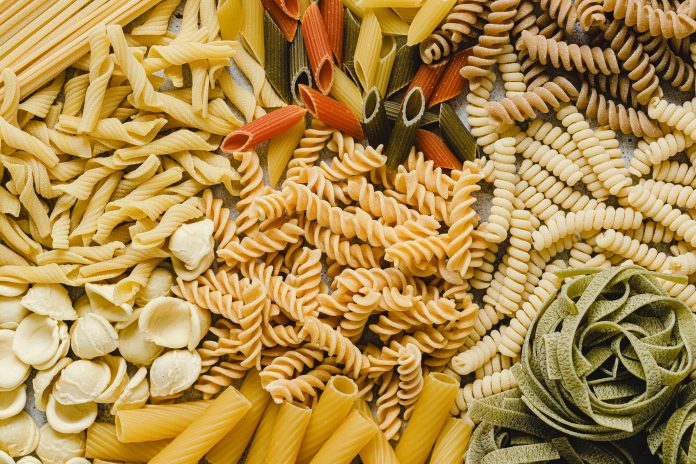Carbohydrate metabolism is a complex process that significantly impacts our overall health. Understanding how our bodies handle carbohydrates can help us optimize our well-being. This article delves into the intricacies of carbohydrate metabolism, we’ll explore the concept of insulin resistance, its symptoms, and how to manage it effectively
Carbohydrate metabolism is vital for survival. Carbs are found in sugar, starch and fibre. Sugar and starch are broken down into glucose, which the body needs for energy. Fibre is an indigestible carb which is essential for a healthy gut.
- What happens when we consume carbs? In the first ten minutes, and afterwards?
- What is insulin resistance? How do you know if you have it?
- What factors affect carbohydrate metabolism?
Take a look below and find out.
What happens in the first 10 minutes when you eat high carb food?
Say you have a piece of white toast with jam which is a high-carb food. They both have a high glycaemic index (GI Index) which means they release energy rapidly after eating.
- Digestion starts in the mouth:
- The first stage of digestion is chewing the food in your mouth and mixing it with saliva which contains the enzyme, amylase, which breaks down carbs into glucose. Some of this glucose is absorbed through the mouth into the bloodstream. Carbs are then further broken down in the stomach to produce glucose, which is absorbed through the intestinal walls into the bloodstream. Food stays in the stomach for 40-120 minutes.
- The pancreas produces insulin:
- After eating carbs, there is a steady increase in the blood level of glucose, starting almost immediately when you put food in your mouth. As blood glucose levels rise, this is detected by the pancreas which produces insulin. Insulin alerts cells to take glucose up inside them. As glucose passes into the cells, blood glucose levels fall. This process is disturbed if there is not enough insulin, as in type 1 diabetes, or if the cells have become resistant to the effects of insulin (insulin resistance – IR).
- Excess glucose is stored as glycogen and fat:
- Your body needs carbs for energy. Any excess is converted into glycogen and stored in the liver or deposited as fat. Your brain needs to take glucose from the bloodstream for energy as it cannot store glucose like other parts of the body.
- The normal blood glucose level:
- If you were being tested, a normal blood glucose level before a meal in a nondiabetic is 4-6 mmol/L. Although there is always a spike in glucose levels, after food within 2 hours of eating, the normal response is for this to have settled to 8 mmol/L or less.
- Glucose tolerance testing:
- Your glucose tolerance can be tested by having a glucose tolerance test (GTT), which you must arrange through your GP.
What happens over the next 2 hours?
- The rise in blood glucose has other effects on the body
- As your blood glucose levels rise, your body reacts by producing more cortisol and adrenaline. Your pulse rate increases, your blood pressure will increase, and you will start to sweat. During digestion, blood is diverted from the heart towards the gut. After eating, sometimes people have palpitations.
- The blood glucose level drops suddenly
- However, after about 45 minutes, as the pancreas swings into action, your blood glucose levels crash. This is a steep drop. Your body reacts to this in various ways – you may feel anxious, dizzy, shaky, irritable, tired or develop a headache. A large sugar load can also cause abdominal distension, discomfort and flatulence. Sugar cravings then set in.
What happens if you do this regularly over a period of years?
- Carb addiction:
- Eating too many refined carbs leads to carb addiction and carb cravings. Evidence is accumulating about the addictive nature of carbohydrates. Just like cocaine and heroin, they cause the release of dopamine and serotonin, giving a pleasurable high. As the pleasure wears off, we feel cravings to have more carbs. This is carb addiction.
- Dangers of processed and ultra-processed foods:
- Processed and ultra-processed foods are often high in carbohydrates. They make up 60% of the average UK diet. Unfortunately, this fuels carb addiction and contributes to the nation’s obesity crisis. Emotional eating is all too common, and when we overeat, we often turn to high-carb, high-fat, and high-salt foods like processed foods.
- Insulin resistance:
- The problem is that as time passes if you keep eating large amounts of carbs, this leads to insulin resistance (IR). This is the first stage before the onset of type-2 diabetes. Excess carbs lead to obesity. Obesity is a major risk factor for type-2 diabetes.
IR – or prediabetes – currently affects 5.1 million in the UK, the majority of whom are unaware.
Symptoms of insulin resistance
There are often no symptoms of IR. If you do have symptoms these might include
- Feeling tired
- Feeling thirsty
- Losing weight without trying
- Peeing more often
- Recurrent attacks of thrush
- Cuts are slow to heal
Signs
- Dark skin around the armpits (acanthosis nigrans).
- Skin tags.
- Retinopathy – damage to the small vessels at the back of the eye.
However, IR may be present with no symptoms. It is more common in the following –
- A waist measurement of over 40 inches in men and 35 inches in women.
- Blood pressure of 130/80 or above.
- Raised fasting glucose levels.
- Low HDL cholesterol.
- Raised triglycerides.
It’s also more common in –
- Obesity – especially a large amount of visceral fat.
- Those who don’t exercise.
- Age 45 and over.
If you think you could have IR, see your GP. IR can be reversed before you develop type 2 diabetes, but you need to act right away.
How does blood sugar affect mood and anxiety if we don’t get the balance right?
Research shows when we are depressed, we reach for carbs in preference to anything else. Carbs are also a first choice for stress and anxiety. Also, a carb fix improves our mood within 20 minutes. We often crave carbs in the late afternoon, which is recognised as part of our Circadian rhythms.
What factors affect how your body deals with glucose?
Many factors affect carbohydrate metabolism.
- High or low glycaemic foods
- High GI foods release energy quickly, giving a large spike in blood glucose levels. Low GI foods release energy slowly, avoiding a large glucose spike and helping you feel fuller for longer and less hungry.
- Dehydration
- If you have too little water in the blood circulation, the concentration of glucose will rise. Always make sure you drink at least 2 L of water per day, more in hot weather.
- Medication
- Some types of medication can affect blood glucose levels, such as beta-blockers, thiazide diuretics and statins.
- Physical activity – or lack of it –
- Using your muscles uses up glucose and lowers blood glucose levels. Lack of exercise leads to IR.
- Stress
- Any stress switches on the ‘fight, fright and flight’ mechanism, which can interfere with glucose metabolism.
- Hormones
- Oestrogen, leptin and melatonin are all hormones that regulate the secretion of insulin.
How can you improve the glucose/insulin response?
You can improve the glucose/insulin response by –
- Cutting the carbs
- The human diet should consist of only 45% to 50% carbohydrates. Eat carbohydrates with a low GI index, such as whole grains (brown bread, rice, and pasta), beans, chickpeas, lentils, and jacket potatoes.
- Lose weight
- Try to keep your BMI within the recommended range of 21-25. Cutting carbs is the basis of the keto diet, which severely restricts carbs.
- Drink more water
- At least 2 L per day.
- Do more exercise
- You should exercise for at least 150 minutes per day, including moderate-intensity activities such as brisk walking, jogging, cycling, swimming, or dancing.
- Eat more fibre
- UK adults should have 30 g of fibre per day. This aids digestion. Fibre is found in all fruits and vegetables, as well as whole-grain foods. A lot of fibre is in the skin, so when you can, leave the skin on.
- Reduce your alcohol intake
- Alcohol is high in carbs and empty calories. We should all be drinking within recommended limits – no more than 14 units a day.
Final thoughts
You are what you eat – that’s for sure. Many of us are eating too many carbs, putting on weight and not doing our bodies any favours. Carb addiction affects 15%-28% of the population, according to Diabetes UK. Understanding how carbs are broken down and their negative effects on our health is the first step to tackling the problem. Eating fewer carbs, carbs with a low GI index, and healthy carbs (no processed foods) can only be beneficial for health.











